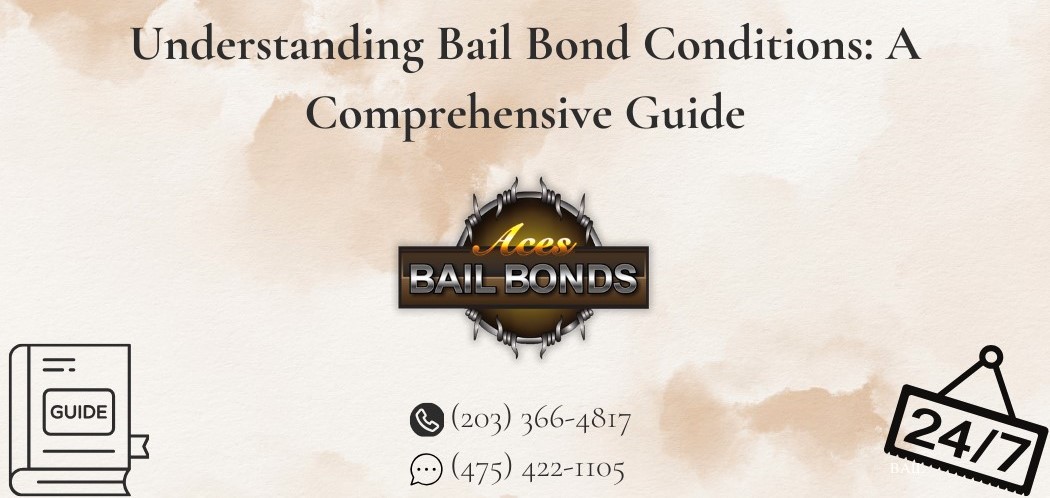Understanding Bail Bond Conditions: A Comprehensive Guide
When someone is released on bail in Connecticut, the court sets rules known as bail bond conditions. These conditions are designed to ensure the defendant returns to court, follows the law, and does not create further risks while out on bail.
Failing to follow these conditions can have serious consequences, including:
-
Revoked bail
-
Loss of collateral
-
A return to jail
This guide explains the most common bail bond conditions, financial responsibilities, and how defendants and families can manage them.
Common Bail Bond Conditions
Court Check-Ins
Defendants may be required to report regularly to:
-
A bail bondsman
-
A probation officer
-
Or directly to the court
No-Contact Orders
Courts often prohibit defendants from contacting victims, witnesses, or co-defendants. Any violation can result in immediate bail revocation.
Travel Restrictions
Most defendants must remain in Connecticut. Leaving the state requires a judge’s approval.
Employment or School Requirements
Judges may require defendants to keep a job, seek work, or continue education. This shows accountability and stability.
Drug or Alcohol Testing
In cases involving drugs or alcohol, defendants may face random testing or treatment programs. Failing a test can mean arrest.
Curfew or Electronic Monitoring
Some cases involve curfews or GPS tracking to help the court monitor activity and reduce risk.
Financial Bail Bond Conditions
💵 Bail Bond Fee – In Connecticut, licensed bail bondsmen charge 7% of the total bail amount. This fee is non-refundable.
🏠 Collateral – Property, vehicles, or valuables may be used to secure a bond. If all conditions are met, collateral is returned.
📑 Payment Plans – Many bail bond agencies, including Aces Bail Bonds, offer flexible payment plans to make bail more affordable.
⚖️ Other Costs – Defendants are still responsible for attorney fees, court fines, and other legal expenses.
How Bail Conditions Affect Families
-
Stress – Court rules and deadlines increase anxiety for defendants and loved ones.
-
Financial Pressure – Bail fees, legal costs, and missed work can strain budgets.
-
Daily Disruption – Regular check-ins and restrictions can interfere with jobs and school.
-
Social Judgment – Families sometimes feel isolated or judged by their community.
Tips for Staying Compliant
✅ Know the Rules – Review all bail conditions carefully.
✅ Stay in Touch – Communicate with your bail bondsman and lawyer regularly.
✅ Keep Records – Save receipts, court notices, and check-in logs.
✅ Get Support – Rely on family, friends, and community resources when needed.
✅ Avoid Risky Behavior – Stay away from situations that could lead to new charges.
Final Thoughts
Understanding bail bond conditions is the key to staying compliant and avoiding further legal problems. While these rules may feel strict, they are manageable with the right guidance.
At Aces Bail Bonds, we provide 24/7 bail bond services across Connecticut. We explain conditions clearly, offer flexible payment options, and guide families step-by-step through the process.
📞 Call (203) 366-4817 today for fast, affordable, and confidential bail bond support.
Aces Bail Bonds – Professional, Reliable, and Always Here When You Need Us.

